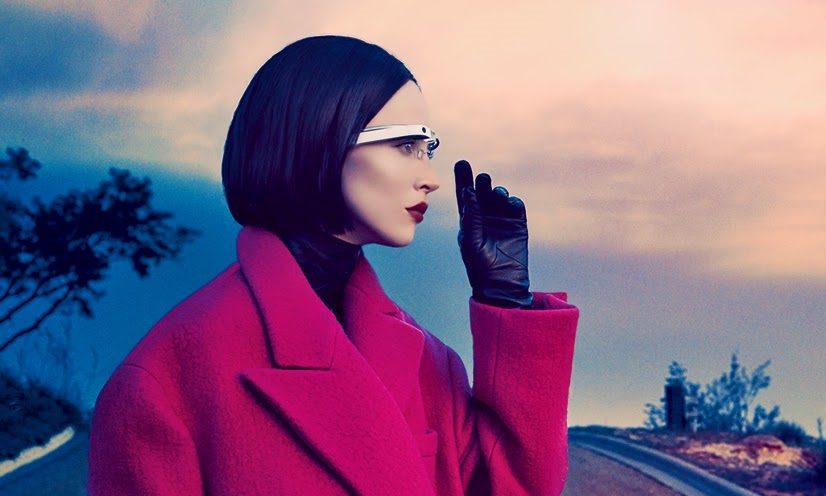 Continuing Google’s interesting take on marketing Glass, the company’s forthcoming wearable computer, a photo shoot appearing in Vogue’s September 2013 issue shows the unit as part of a retro-futuristic landscape. Fashion Director Tonne Goodman and photographer Steven Klein got together to shoot models Raquel Zimmermann, Toni Garrn, and Niklas Garrn in Lubbock, Texas. Seven of the photos are available on Vogue’s website and you can find the full shoot in the September 2013 issue of Vogue. Google is taking a very interesting approach to marketing Glass. Rather than focusing on it as solely a tech product, they’re looking at it from a design and lifestyle perspective. They’ve latched onto the fashion world as a way to show Google Glass as a stylish and useful addition rather than a geeky gadget. Being vogue will make or break the success of Google Glass. While I personally think Google Glass is good looking and would happily wear one around, I’ve heard at least a few people say it looks geeky and or stupid. Overcoming that attitude will be a challenge if Google wants wearable computing to become mainstream. Their unique fashion-based approach could be key.
Continuing Google’s interesting take on marketing Glass, the company’s forthcoming wearable computer, a photo shoot appearing in Vogue’s September 2013 issue shows the unit as part of a retro-futuristic landscape. Fashion Director Tonne Goodman and photographer Steven Klein got together to shoot models Raquel Zimmermann, Toni Garrn, and Niklas Garrn in Lubbock, Texas. Seven of the photos are available on Vogue’s website and you can find the full shoot in the September 2013 issue of Vogue. Google is taking a very interesting approach to marketing Glass. Rather than focusing on it as solely a tech product, they’re looking at it from a design and lifestyle perspective. They’ve latched onto the fashion world as a way to show Google Glass as a stylish and useful addition rather than a geeky gadget. Being vogue will make or break the success of Google Glass. While I personally think Google Glass is good looking and would happily wear one around, I’ve heard at least a few people say it looks geeky and or stupid. Overcoming that attitude will be a challenge if Google wants wearable computing to become mainstream. Their unique fashion-based approach could be key.

Before Vogue, Google Glass was featured as part of New York Fashion Week at the DvF Spring 2013 collection showing in September 2012. At the showing, 7 models strutted their stuff, equipped with Google Glass. If you’re the visual type, we compiled a huge gallery of 100 Google Glass photos here. Would you wear glass?







